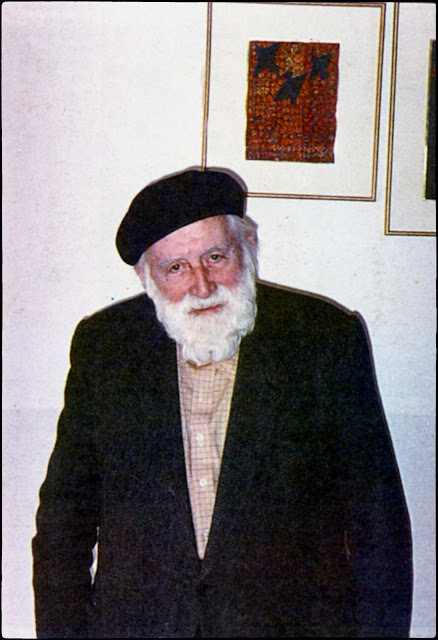I am
very moved by one detail
in the
coronation at Vlachernai of John Kantakuzinos
and
Irini, daughter of Andronikos Asan.
Because
they had only a few precious stones
(our
afflicted empire was extremely poor)
they
wore artificial ones: numerous pieces of glass,
red,
green, or blue. I find
nothing
humiliating or undignified
in
those little pieces of colored glass.
On the
contrary, they seem
a sad
protest against
the
unjust misfortune of the couple being crowned,
symbols
of what they deserved to have,
of
what surely it was right that they should have
at
their coronation—a Lord John Kantakuzinos,
a Lady
Irini, daughter of Andronikos Asan.
Πολύ με συγκινεί μια λεπτομέρεια
στην στέψιν, εν Βλαχέρναις, του Ιωάννη Καντακουζηνού
και της Ειρήνης Aνδρονίκου Aσάν.
Όπως δεν είχαν παρά λίγους πολυτίμους λίθους
(του ταλαιπώρου κράτους μας ήταν μεγάλ’ η πτώχεια)
φόρεσαν τεχνητούς. Ένα σωρό κομμάτια από υαλί,
κόκκινα, πράσινα ή γαλάζια. Τίποτε
το ταπεινόν ή το αναξιοπρεπές
δεν έχουν κατ’ εμέ τα κομματάκια αυτά
από υαλί χρωματιστό. Μοιάζουνε τουναντίον
σαν μια διαμαρτυρία θλιβερή
κατά της άδικης κακομοιριάς των στεφομένων.
Είναι τα σύμβολα του τι ήρμοζε να έχουν,
του τι εξ άπαντος ήταν ορθόν να έχουν
στην στέψι των ένας Κυρ Ιωάννης Καντακουζηνός,
μια Κυρία Ειρήνη Aνδρονίκου Aσάν.
στην στέψιν, εν Βλαχέρναις, του Ιωάννη Καντακουζηνού
και της Ειρήνης Aνδρονίκου Aσάν.
Όπως δεν είχαν παρά λίγους πολυτίμους λίθους
(του ταλαιπώρου κράτους μας ήταν μεγάλ’ η πτώχεια)
φόρεσαν τεχνητούς. Ένα σωρό κομμάτια από υαλί,
κόκκινα, πράσινα ή γαλάζια. Τίποτε
το ταπεινόν ή το αναξιοπρεπές
δεν έχουν κατ’ εμέ τα κομματάκια αυτά
από υαλί χρωματιστό. Μοιάζουνε τουναντίον
σαν μια διαμαρτυρία θλιβερή
κατά της άδικης κακομοιριάς των στεφομένων.
Είναι τα σύμβολα του τι ήρμοζε να έχουν,
του τι εξ άπαντος ήταν ορθόν να έχουν
στην στέψι των ένας Κυρ Ιωάννης Καντακουζηνός,
μια Κυρία Ειρήνη Aνδρονίκου Aσάν.



























